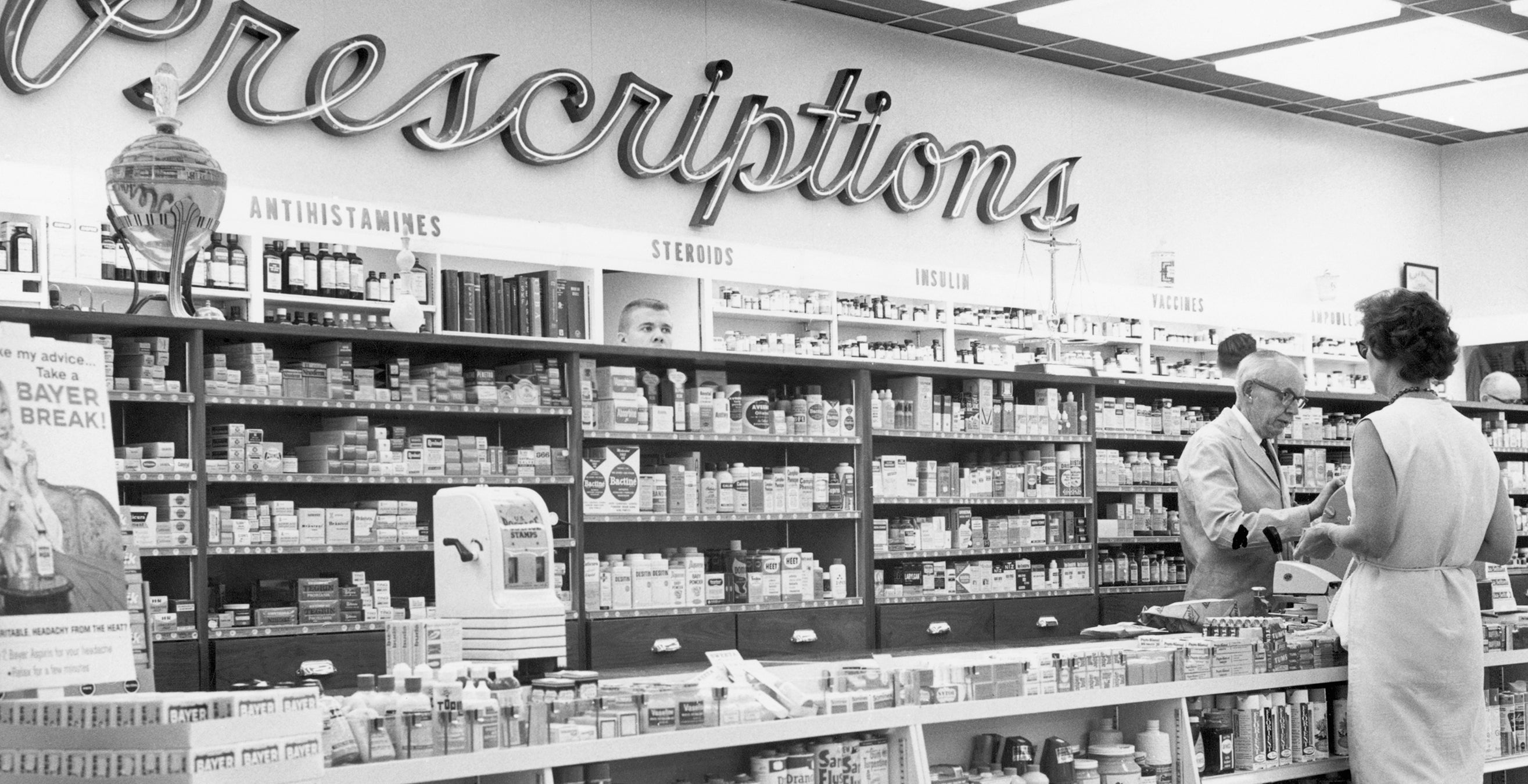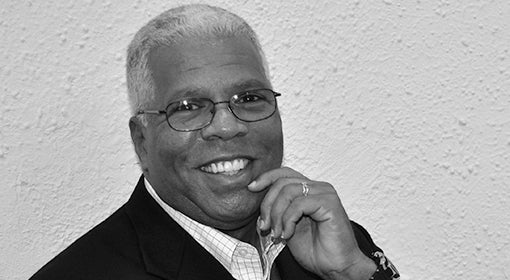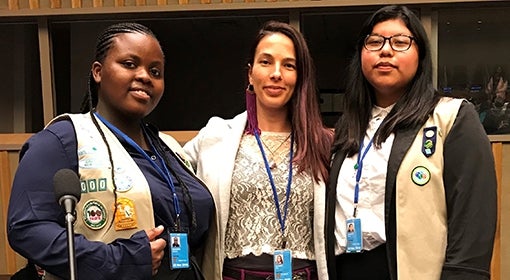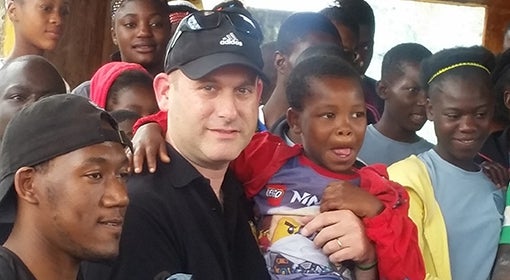Lloyd Myers knew he had to do something to help.
Organ transplant recipients, fresh from the hospital, were arriving at the drugstore with new leases on life; but the information Myers, a pharmacist, had to give them was unexpected and overwhelming, even devastating.
It was the late 1980s. Pittsburgh had become a hub for organ transplantation thanks in large part to Pitt’s Thomas Starzl. The world-renowned surgeon and researcher pioneered advancements in transplantation and the immunosuppressant drug protocol required to prevent organ rejection.
Prescriptions for those drugs brought some transplant patients into the pharmacy where Myers worked. He watched their reaction when reality sunk in—they weren’t purchasing the normal bottle of pills, but rather oral and injectable drugs with highly complicated regimens and huge monthly bills.
“You would just see them literally drop and cry,” he recalls.
Myers (PHARM ’84) had become a pharmacist to help people. He wouldn’t let these patients lose a new sense of hope because of the financial and psychological difficulty of their aftercare.
“It became this question,” he says. “How does pharmacy become part of the care chain so that when transplant patients leave the hospital, they don’t end up having organ failure because they couldn’t afford to start or went off their medication?”
Pharmacists always seemed to have answers when Myers and his sister, Simone (Myers) Karp, were young. For their family, drugstores were more than places to get prescriptions filled.
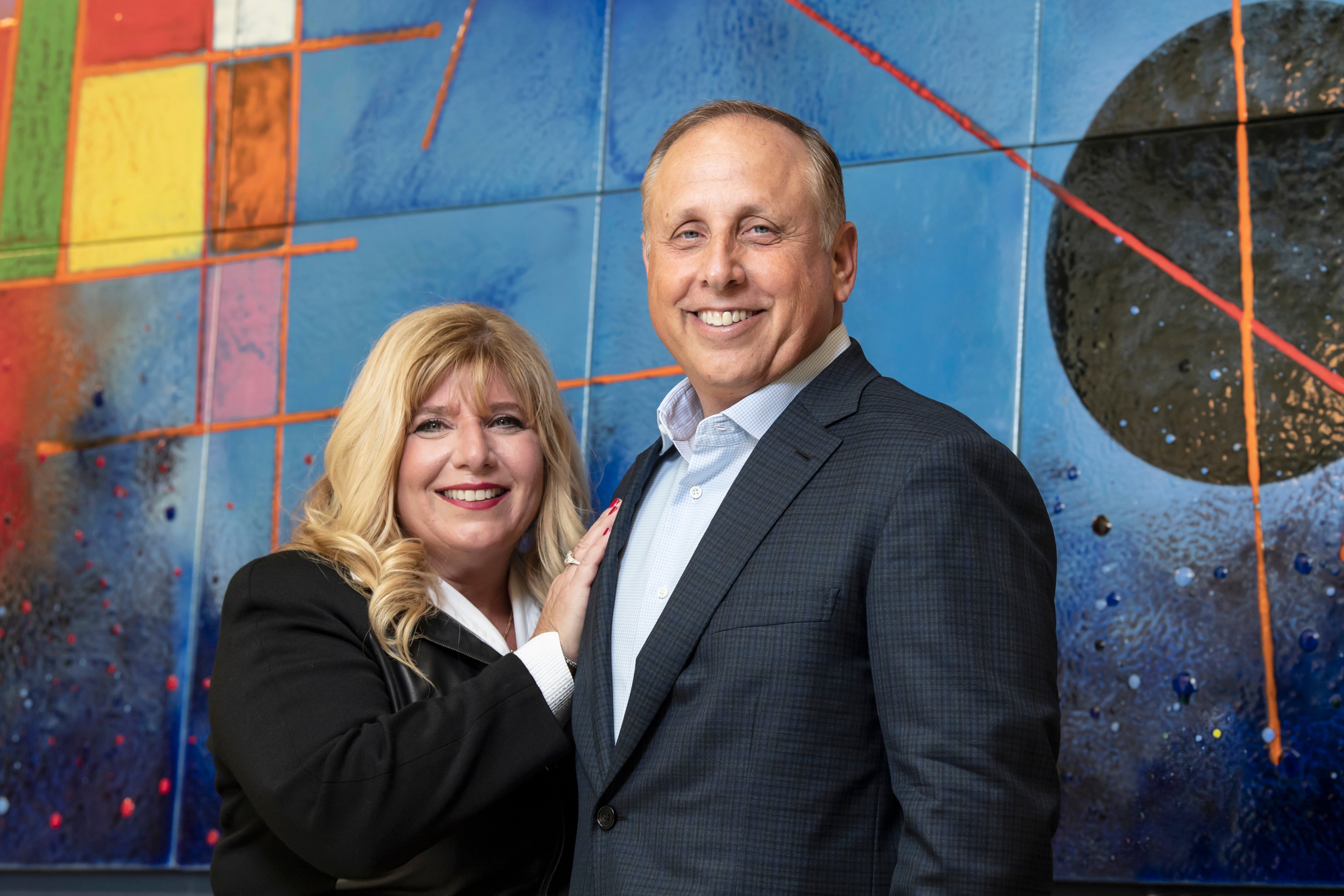 “We went to Murray Pharmacy in Pittsburgh’s Squirrel Hill neighborhood like people go to a doctor today,” Karp (PHARM ’86) remembers. The pharmacists were invested in their neighbors’ health, giving professional advice on everything from sore throats to rashes.
“We went to Murray Pharmacy in Pittsburgh’s Squirrel Hill neighborhood like people go to a doctor today,” Karp (PHARM ’86) remembers. The pharmacists were invested in their neighbors’ health, giving professional advice on everything from sore throats to rashes.
The importance of helping others was a foundational element of Myers and Karp’s upbringing. Helmed by a father who worked long hours at a furniture store to provide for his children, their family prized togetherness and generosity. These traditions helped to spark Myers and Karp’s professional aspirations, eventually leading them to Pitt’s School of Pharmacy. Time there would inspire them to return years later to contribute to the school’s mission. But first, it would allow them to discover multiple health care career paths.
“I learned about clinical research, drug development, and the sales and marketing components of the pharmaceutical industry,” Karp says. After graduation, she went to work in marketing and sales for the drug manufacturer Lederle Laboratories, where she was on the front lines of the creation of a new oncology division and helped to enable patients with cancer to access new therapies.
Her brother settled in at a drugstore a few miles from Pitt. That’s where he figured out a way to help transplant recipients navigate life after surgery. He negotiated with insurance companies to maximize patients’ benefits and minimize up front costs. He also developed medication adherence programs and teamed up with social workers to create psychosocial patient support systems.
The approach was so effective that when he bought in as a partner in Murray Pharmacy he expanded his approach to managing specialty drugs for patients with cancer, HIV, and infertility. Later, he teamed up with the American Pharmacists Association to train pharmacists nationwide on his unique specialty pharmacy model.
Meanwhile, Karp joined biopharmaceutical company Amgen, helping to launch and market its oncology business, which included new biotechnology therapies. Just as her brother created a model for supporting patient needs, she created a model for training doctors in using breakthrough treatments.
It soon dawned on the brother and sister to join forces. In 1997, they created CECity, an online continuing education platform to train medical professionals in the use and delivery of new and complex drugs.
“We always cared about patient care and at the core of that is the education of health care professionals,” Karp says.
The firm later branched into using big data to identify areas where the quality of health care systems could break down; from that information they created educational programs to fix those problems. They sold CECity in 2015, but not before shaping it into an industry-leading company supporting 1.2 million health care professionals.
While they have been serving others through their work, they have also helped to advance Pitt.
Karp, who lost her husband to brain cancer, has funded a program in the University’s School of Pharmacy for medical and pharmaceutical researchers to take an integrated approach to combating brain tumors. The Karp Family Foundation also established the Hank S. Karp Neuro-Oncology Fellowship with the UPMC Hillman Cancer Center.
Myers’s philanthropy has helped Pitt create a PharmacoAnalytics track, which blends computational science, precision medicine, patient/provider data, and outcomes research to improve medication efficacy, value, and safety.
They pledged their gifts for the same reason Myers sought answers for those transplant patients, the same reason Karp worked to keep the medical community abreast of the latest research, the same reason the siblings believe their childhood pharmacist was so caring. That reason, they say, is to improve lives.
Gifts: Boxed
Kyle R. Lamborn (GSPIA ’04) made a gift of appreciated stock to create the Lamborn Family Endowed Student Resource Fund, which will support travel or other educational expenses for students of the Graduate School of Public and International Affairs (GSPIA) program in Washington, D.C. “I thought about making a contribution for a while and seeing the recent top 10 national ranking of GSPIA caused me to put the plan into action,” Lamborn says.
The Caesar O. Aldisert (A&S ’39, MED ’43) and Helen M. Aldisert Nursing Scholarship was recently created with a $500,000 gift from the Laughlin Aldisert Family Fund. The scholarship honors the parents of Regina Aldisert, whose late husband was Pitt Trustee Terry Laughlin (BUS ’81G). “My father would have been 100 in 2018 when this scholarship was created. He was ahead of his time in his respect for nurses as partners in patient care,” she says. “My mother trained as a nurse. Caring for others infuses her spirit.”
Mark G. Papa (ENGR ’68) established the Mark G. Papa Petroleum Engineering Fund in the Swanson School of Engineering with a $3 million gift. “Energy is necessary to raise the living standards of the global population, and I believe hydrocarbons will be an important part of the energy mix for decades to come,” he says. “I hope the fund encourages more engineers to enter this exciting field.” The gift will support faculty recruitment and retention, graduate fellowships, and student programs.
This article appeared in the Winter 2020 edition of Pitt Magazine.

